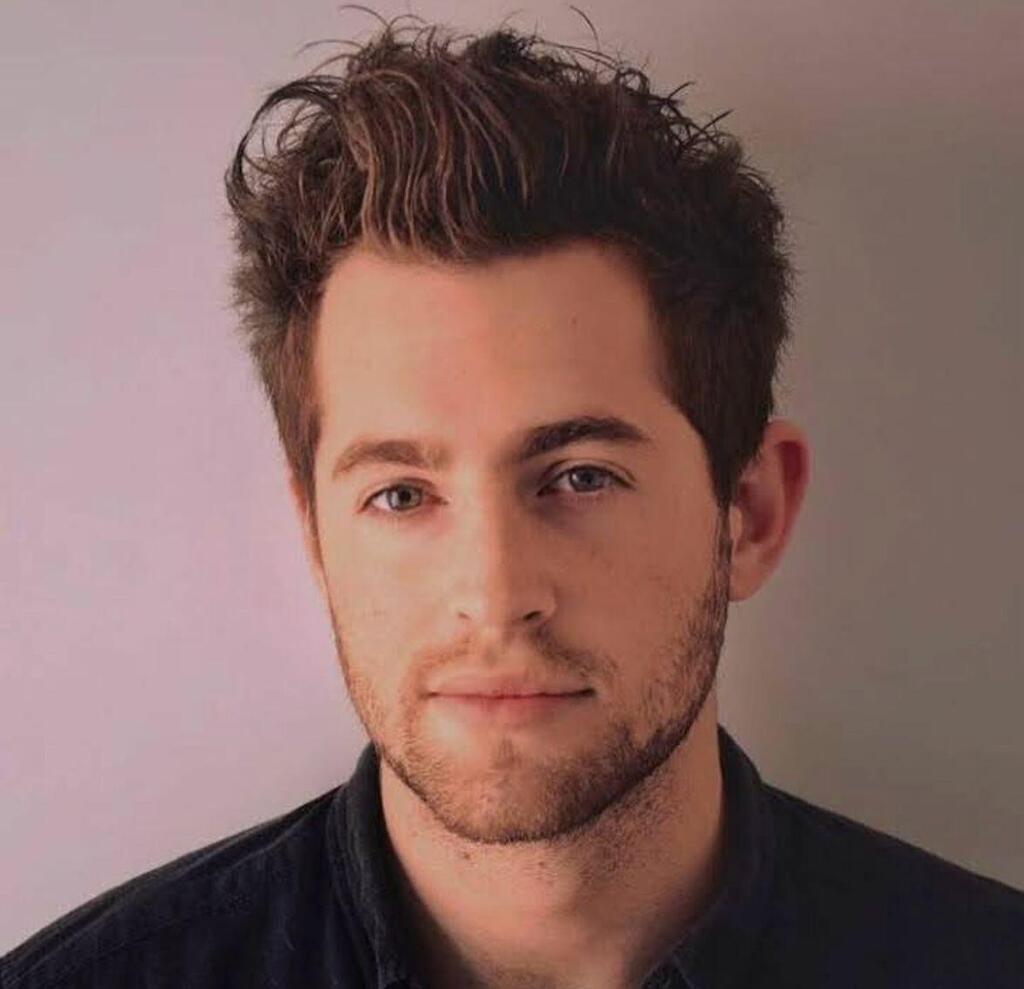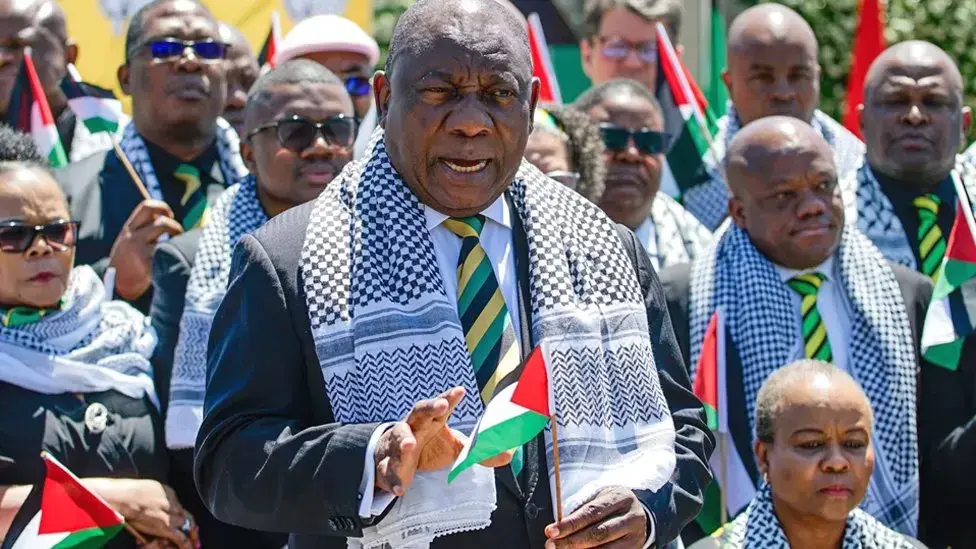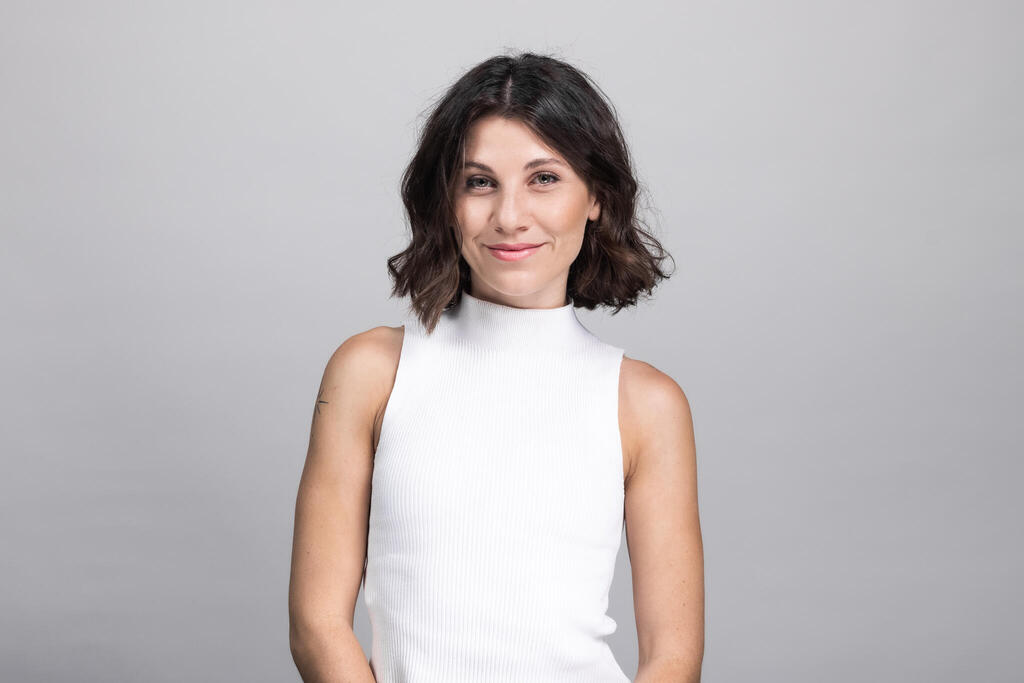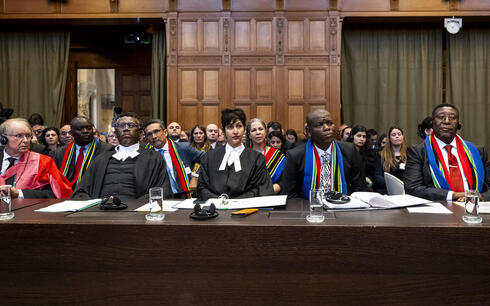
Olim at War
“It felt like a betrayal”: South African Jews caught in the crossfire amid South Africa’s genocide suit
CTech spoke to South African immigrants about South Africa’s ongoing genocide suit against Israel, how it has impacted the Jewish community, and the domestic political and foreign policy interests driving the country's policy towards Israel
South Africa’s ongoing case at the International Court of Justice (ICJ) at the Hague accusing Israel of committing genocide against Palestinians in Gaza has unleashed a political earthquake far beyond the realm of geopolitics or international law. It has been particularly shocking and painful for South Africa’s Jewish community and South African immigrants, or olim, in Israel, who find themselves in the truly surreal and devastating situation in which their country of birth (to which most South African olim continue to possess strong ties) is suing their adopted home for the most egregious crime under international law.
“I’ve always been very proud to be South African and this just hit that sense of identity and pride. It felt like a betrayal,” says Yaffa Abadi, who immigrated to Israel from Johannesburg in 2015 and launched her brand consulting business for investors and executives, Abadi Brands, just a few days after October 7. “Usually, I’m so excited to go home, and I was even planning to bring friends for Pesach. Now, they don’t feel comfortable coming.”
5 View gallery
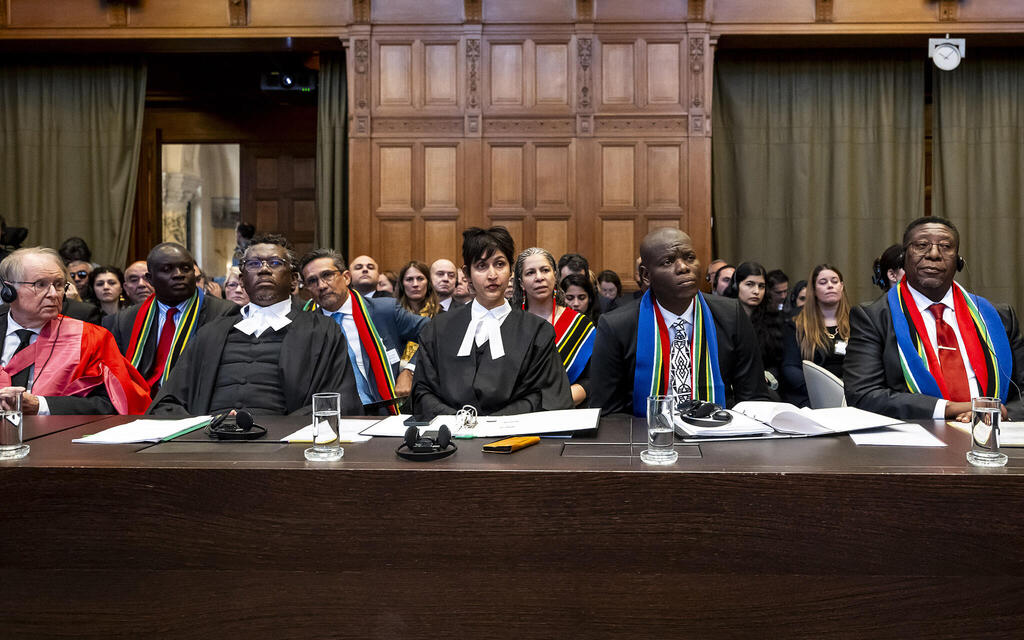

South Africa's legal team at the International Court of Justice on January 11 at the Hague.
(Courtesy: International Court of Justice)
At the same time, the actions of their government have not been entirely shocking to South African Jews, particularly those who immigrated to Israel. “I wasn’t surprised that it happened at all or that it was South Africa who did it,” says Samuel Hyde, a political researcher at the Jerusalem-based Jewish People Policy Institute (JPPI), who made aliyah from Johannesburg in 2021. “The ANC is systemically antisemitic. There is a deeply entrenched antisemitism in the world view of the elite political echelons in South Africa. But whereas the apartheid government was linked to the Nazis, the ANC is linked to the USSR. Even the genocide claim can be found in Soviet propaganda.”
The ANC has for years had a combative relationship with Israel. Prior to announcing their ICJ suit, South Africa severed diplomatic ties with Israel in November, recalling its diplomats and closing the Israeli embassy in Pretoria. Government officials began referring to a “Palestinian holocaust” only two days after October 7. President Cyril Ramaphosa notably did not condemn Hamas for the October 7 attacks, and instead blamed Israel, before welcoming a Hamas delegation to the South African parliament in December.
However, few among the Jewish community believe that South Africa’s policy is based on any true humanitarian concern for Palestinians, but rather on maintaining its own geopolitical and economic interests. Their crusade against Israel is seen as a highly transparent distraction from the numerous domestic problems faced by the ANC, which has recently declared bankruptcy and is facing national elections in May.
“The ANC [South Africa’s ruling party] has done nothing for the country since it liberated black people from apartheid - that’s its legacy. The education system, crime, and poverty is worse than it was under apartheid. 40% of people don’t have access to clean water. By linking everything to apartheid, including foreign conflicts, you’re uniting the majority behind a cause that is understandable but is being manipulated to maintain political power,” says Hyde.
The government has long capitalized upon and itself promoted a conflation with the Palestinian nationalist movement and the struggle of South Africa’s black population under the apartheid government. “Because of the apartheid comparison, pro-Palestinian sentiment is very alive and strong. It’s an easy and lazy comparison and people are fed it from a young age,” says Abadi. “Apartheid is very recent - my generation is the ‘Born Free’ generation. So, it makes sense that it’s a triggering term, but it's unfortunate that people don’t look deeper and do their own research.”
President Cyril Ramaphosa’s African National Congress (ANC), South Africa’s largest political party, has ruled the country since 1994 and was once associated with Nelson Mandela and the end of South Africa’s apartheid regime. Today, it is synonymous with rampant corruption, with the government having faced numerous allegations of bribery and money laundering, including the president’s alleged theft of millions of dollars in public funds.
“There isn’t a lot of trust in our government. We don’t hold them to a high moral standard, so [the ICJ suit] isn’t shocking in that sense,” says Abadi, who, like many South African Jews is unconvinced that a government synonymous with corruption, ineffectiveness and “no sense of morality towards its own people” is trying to insert itself into this foreign conflict out of humanitarian concern. “In my mind there’s no doubt that this isn’t about them fighting for justice - they have an ulterior motive. There’s no chance that this is authentic.”
“The South African government does not represent the people. They’ve done this for their own political reasons. They have an election soon and they want to pander. There are very few Jews in South Africa - in the eyes of the ANC, our vote doesn't matter. We don’t see it as reflective of the people, but as a government that has failed in its duty,” says Dorron Kline, the head of Telfed, the organization for the immigration and absorption of olim from South Africa and Australia.
But beyond diverting attention from the ANC’s own failings, the government’s policy towards Israel is part of a larger gravitation towards the Sino-Russian sphere of influence. South Africa maintains close geopolitical and economic ties with Russia, whom they have steadfastly supported in its war against Ukraine, China, and Iran, with whom they have developed particularly close ties in recent years.
“This is a foreign policy love affair,” says Hyde. “South Africa supplies Iran with uranium, they have ongoing multi-billion trade deals, they support Iran in nuclear forums on attaining nuclear weapons, and they’re very open about their relationship with Hamas and Hezbollah.” South Africa, who will host Iranian President Ebrahim Raisi later this month, has served as a key foreign policy focus for the Islamic Republic which has helped Iran achieve BRICS membership (Brazil, Russia, India, China, South Africa), an organization devoted to rivaling Western economic and political hegemony.
5 View gallery
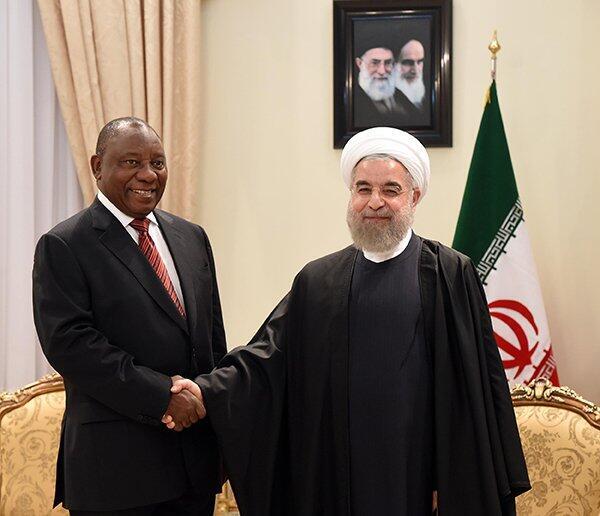

President Ramaphosa with Iranian president Hassan Rouhani in Iran in 2015.
(ANC / Twitter)
Within this context, South Africa’s ICJ suit against Israel served as “a perfect convergence of ideology with foreign policy interest,” says Hyde. “Because South Africa is viewed as a ‘beacon of justice,’ it's legitimate for them to take Israel to court, in a way that it wouldn’t have been for North Korea or Russia.”
For many South African Jews, there is no question that the state’s case against Israel is baseless, that the government is simply using the International Court of Justice to serve its foreign policy interests, something that Hyde says has dangerous implications for the world beyond Israel or the Jewish people. “As flawed as it is, international law was created post-WWII for very serious reasons and when you start manipulating laws because you can for political reasons, the consequences can be devastating. There is no greater example of this than South Africa’s accusation of genocide against Israel.”
Two South Africas
For South African Jews, there are two South Africas. On the one hand, many emphasize the country’s exceptional natural beauty, kind and welcoming people, and ‘ubuntu’ - togetherness. They will also point to the disconnect between the attitudes of the South African government and South African people.
The close-knit Jewish community is about 50,000 - a drop in the ocean of South Africa’s population of close to 60 million. The 12th largest Jewish community in the world, South Africa’s Jewish community is extremely Zionist with deep roots in the country, primarily descending from Lithuanian Jews fleeing persecution in the 1880s.
“We’ve been in South Africa for generations. We feel a sense of pride and many Jews were also active in the fight against apartheid,” says Abadi. Their long history in the country and strong South Afircan identity, she says, have made the feeling of betrayal that much more poignant.
But, unlike in North America or Europe, where Jewish communities have been reporting a massive rise in antisemitic hate crimes, South African Jews, Abaddi says, “don’t feel an imminent sense of danger to their well-being.” However, combined with violent outbreaks at pro-Palestinian rallies and the ousting of David Teeger, the captain of the Under-19 national cricket team over his alleged support for Israel, has caused unprecedented tension and anxiety for the Jewish community. It has contributed to an environment in which South African Jews feel like “their identity has been cracked,” Abadi says, increasing the desire of some to leave.
The South African Jewish community, peaking in the 1970s at about 150,000 has dwindled over time to roughly a third of that today, with many immigrating to Israel, Australia, UK, Canada and elsewhere. While this migration has historically been attributed to the rise in crime, poverty, economic disparity, and the lack of trust in a highly corrupt government, rather than antisemitism, that may be changing.
“I didn’t really feel any antisemitism growing up, but gradually things have gotten worse and worse. There are very few Jews in government and there is a very strong pro-Hamas ideology. They feel what the Palestinians are going through is like what black South Africans went through during apartheid, which is how they manipulate people into believing [the genocide suit],” says Osher Favel, who made aliyah from South Africa on December 4th, after originally planning to arrive on October 15th.
She adds that October 7 and the South African government’s response to it only made her want to come to Israel that much more. “South Africa is sadly deteriorating. I love South Africa. Overall, it has a lot to offer; the people are wonderful, and it's really beautiful, but it also has a lot of negatives. I feel much safer here.”
Kline says that while there was a decline in the number of South African Jews making aliyah this past year, with 470 new olim in 2022 compared to 260 in 2023, he expects that trend to reverse. “The war caused a major decline in aliyah numbers. We discouraged people with children from coming at the beginning of the war.” Now he says, people are starting to come back, noting that there was a flight of olim from South Africa in January, but that “we won’t see big numbers until things calm down.”
“Today, I wouldn’t move back if you gave me $10 million,” says Hyde. “South Africa is a failing state. It's a beautiful country with beautiful people, but as long as the current political leadership remains there is no hope for it.”









